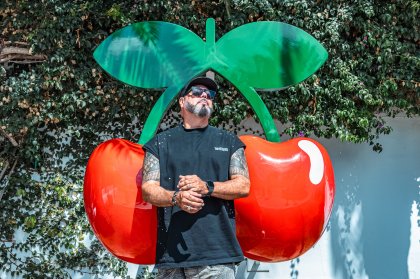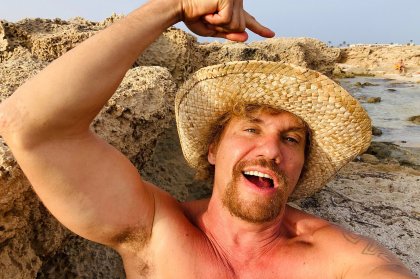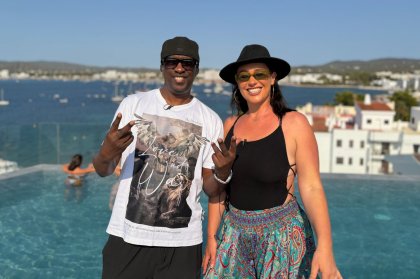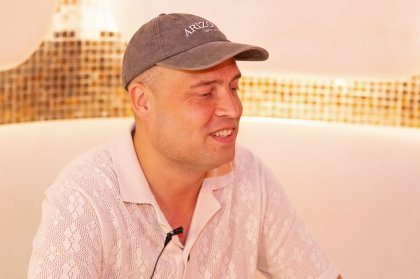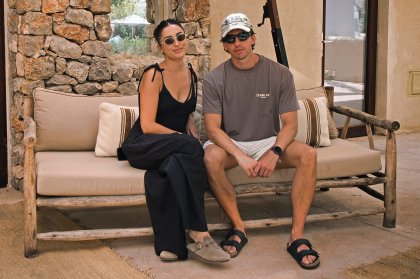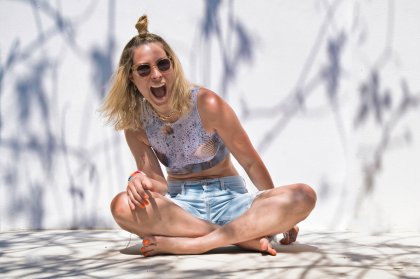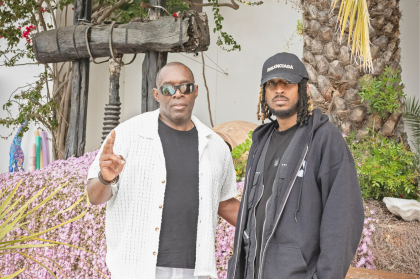“People don't live in Ibiza” is invariably the response I get when I tell them where I spent the first fifteen years of my life. Or how about “do your parents own a club?” after I tell them that they still live here. “Are they hippies?” when I tell them they do not, in fact, own a club. “It must have been a terrible childhood growing up amongst such tourism” yes it was absolutely terrible. What do you do after you grow up in paradise?
I'll start somewhere from the beginning, my father was travelling between Goa, Morocco and Ibiza as far back as the '70s, working as a writer - a travel journalist. Much like you and I, he fell in love with the place and would spend years of his life coming back here for the summers. We're talking life on the island before the Pachas and the DC10s, before the legendary KU, before there were telephones, paved roads or even an airport. You arrived at the beach, were told in which house you could stay and that was that.
As it does for so many, Ibiza left a special place in my father's heart and after he married, even managed to persuade his much more conservative (read: Japanese) wife that Ibiza was the place to raise their only daughter, me. They bought some land, built a house and sent me to the only English school on the island, Morna Valley. The stories of Morna Valley are endless, but the love and care that I received and went away with: priceless.


You could technically see Morna as an overpriced hippy commune with retired teachers from the UK continuing their teachings in a much sunnier and more relaxed setting than back home. They would teach us what they knew, be it of importance or not; my history lessons consisted of learning detailed descriptions of the soldiers' movements in the battle of Hastings but when it came to the United States Declaration of Independence, or even World War II or any other world history, there were gaping omissions - oh and the subject of Science was simply non existent.
When there were a few days of heavy rain the toilets would flood (all two of them for the entire primary and secondary school), which meant the kids got a day off school. Our playground consisted of the campo outside and the football field we shared with a tribe of sheep. We called our teachers by their first name, and even went to their house for movie nights. We had kids from all corners of the world, with an international upbringing, rich and poor, all together under one roof. Morna and the Morna generation taught me how to find myself and be free without judgment, something I missed when I swapped the campo for city life back in Amsterdam, where it seemed my friends were more involved with who was wearing which designer than of matters of real importance. Opinions of Morna vary greatly, but I wouldn't have changed my upbringing for the world.
"OVER THE YEARS EVERYONE HAS GONE
THEIR SEPARATE WAYS, BUT THE ISLAND
STILL UNITES US. WE ALWAYS COME BACK,
EVERYBODY IN THEIR OWN TIME."
If I say I grew up in Ibiza people automatically think I grew up in the midst of the clubs and after parties, when in reality all we had to entertain ourselves with was running amok in the woods, water balloon fights, BB gun wars, tree climbing and of course the legendary birthday parties – parties that our parents would slave away for, not necessarily for the kids, but more of an excuse for them to have a party. I always looked forward to these parties, and looking back on it what struck me the most is that even from a young age we were included in our parents' conversation. Our opinion counted, and that carried on through all ages; everyone simply hung out with everyone and I still feel that way today.
Most of us would go back to our hometown for the summer, so it was only when I moved back to Amsterdam and returned to Ibiza for the summer that club life really came into play. The first club I ever went to was Pacha. I remember hitchhiking there when I was fifteen – none of us had cars so hitchhiking was the standard way to get around – and my friends and I would just loiter until Valentino (the doorman) would eventually tire of us and simply let us in. I can honestly say I might have spent every night of that entire summer dancing up on the speakers in the Funky Room with Willie Graff and Nicc Johnson (another Morna victim) or in the Global Room when they were still playing hip hop with the occasional performance by Beatmaster G.
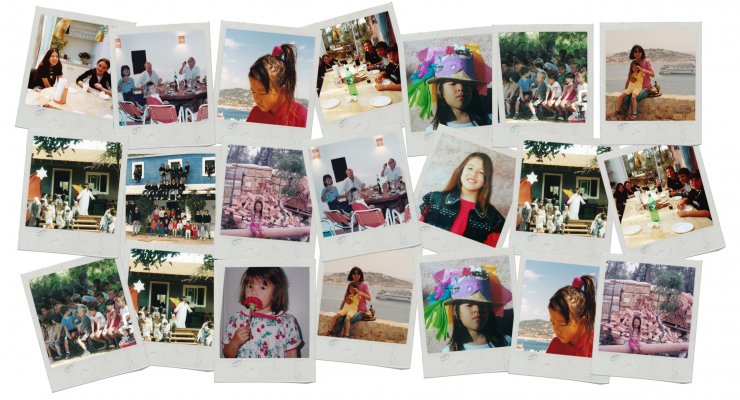
Over the years everyone has gone their separate ways but the island still unites us. You can take us out of the island but you cannot take the island out of us. We always come back, everybody in their own time. I have my friends here, my life here, it's where I will always feel most at home. Oh sure everybody is saying how the island has changed, and not necessarily in a good way. It's too busy, it has become too commercial, and now with the prices they are trying to turn it into St. Tropez. These changes worry me from year to year because that's how fast things are moving, but I realised something as of late, and that is no matter how much the island is changing, the energy here will always be the same. It's invigorating and contagious and has captured so many of our souls, and as long as we keep breathing I stand strong in the opinion that it cannot be taken away.
Ibiza is the island of beautiful people. I don't mean that in the literal sense, but people who make it here, especially those who find the untouched corners of the island, are here to find themselves and to be free, and that for me is a journey of beauty. It's a treacherous beauty that can sometimes be dangerous, but those experiences test your strength and shape you into a stronger and a more understanding person. I used to ask myself, what comes after Ibiza? What comes after paradise? Only to realise I am blessed to carry Ibiza inside of me and I'm free take it with me wherever I go.
View this feature in the weekly Spotlight Magazine, Issue 035.
WORDS | Maya Dupont
